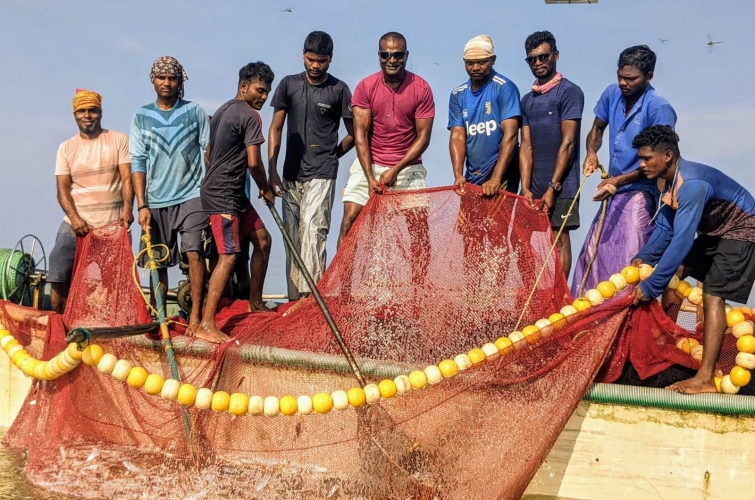Before the sun rises over the Arabian Sea, Goa’s coastline hums with quiet preparation. While most of the state sleeps, the Goan fisherman begins his day—deeply tied to the tides, the wind, and a legacy passed down through generations. His life isn’t just about catching fish—it’s a dance with nature, a commitment to community, and a symbol of Goa’s deep maritime heritage.
Early Morning: Before the Break of Dawn
By 4:00 AM, fishing villages like Vasco, Betul, Chapora, and Malim start to stir. Fishermen ready their ramponn nets, mend torn lines, and check their motorized or traditional boats (canoes or vallis). The sea dictates their schedule; on calm days, they push off from shore just as the horizon lightens. The air smells of salt and diesel. The waters, still and dark, are both familiar and unpredictable.
Out at Sea: Reading the Ocean
Once they’re out at sea, the work begins. Older fishermen read the currents and birds, scan for movement beneath the water, and decide where to cast their nets. Some dive for shellfish and oysters, others trawl for sardines, mackerel (bangda), or prawns.
It’s a physical job. They pull in heavy nets, sort the catch, and work under the glare of the rising sun or, on cloudy days, under the rhythm of monsoon showers. For traditional fishermen, there’s no GPS—only generations of wisdom and instinct.
Midday: Selling the Catch
By 10:00 or 11:00 AM, they return to the jetty. The shore bustles with fish vendors—mostly women known as “fisherwomen” or kolkars—who haggle, sort, and arrange baskets for local markets. Some fish go to wholesale dealers, others are immediately sent off to Mapusa, Margao, or Panaji markets. There’s little time to rest. Cleaning the boats, drying nets, and preparing for the next day starts almost immediately.
Afternoon Break: Rest and Repair
The afternoon is for mending—nets, boats, bodies, and bonds. Fishermen take short naps, share home-cooked rice and curry, and exchange stories. This is the calm before another early morning.
Evening: Community and Faith
Fishermen remain deeply connected to their villages, parishes, and temples. Many offer prayers at chapels or shrines, especially to St. Peter (patron saint of fishermen) or local deities like Shantadurga or Betal, depending on their faith. During festivals like Sangodd (St. Peter’s Feast) or Narakasur Chaturdashi, the community celebrates together—decorating boats, lighting lamps, and sharing food.
More Than Just a Job
A Goan fisherman’s life is full of resilience, pride, and humility. It’s shaped by centuries of tradition, dependence on nature, and a deep love for the sea. Though modern fishing methods and environmental concerns are changing their world, the spirit of the Goan fisherman remains unwavering—rooted in the tide, the catch, and the community.


